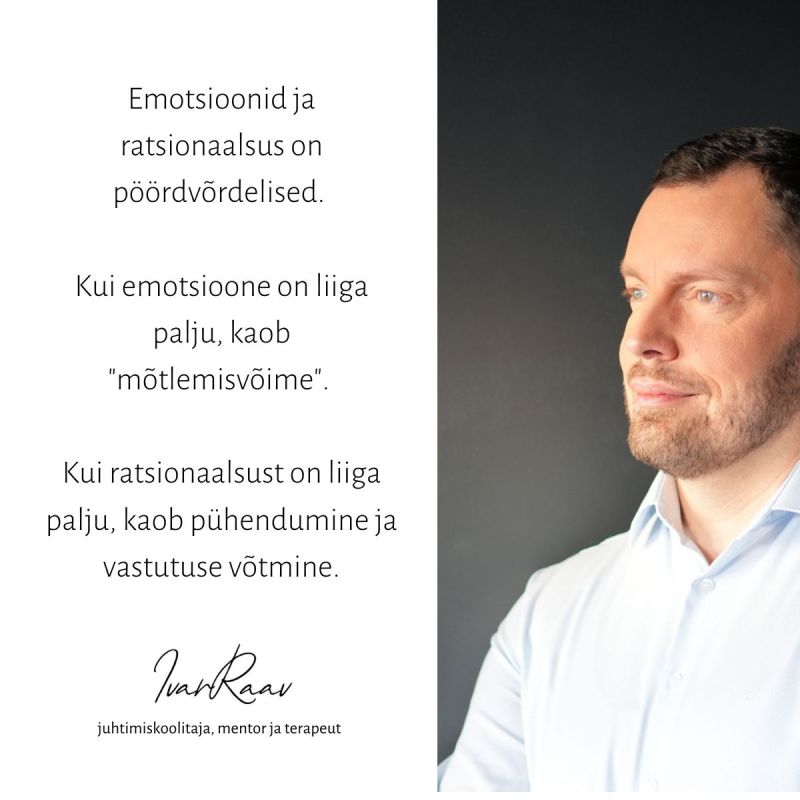In the workplace, we often focus on facts, logic, rationality, results, but forget one important aspect of human functioning – emotions. But it is emotions that lead us to understand needs and lay the foundations for commitment and responsibility.
If the influence of emotions is ignored, important problems are overlooked.
Why a leader should consciously ask for emotions?
Emotions are the keys that open the door to deeper needs and motivation. If we don’t know what is really affecting or touching an employee, it is difficult to create commitment and responsibility within them. Or even more accurately, commitment and responsibility are not created within the individual. Commitment and taking responsibility are the steps that follow once a person’s emotions and needs have been noticed.
How can a leader do this?
Ask, with purpose and empathy. Instead of just asking: “How are you doing?”, try asking deeper questions:
“How do you feel about this situation?”
“What is the emotion you feel about this situation?”
“What do you really feel?”
“How do you feel about your work?”
“How are you feeling today?”
Every emotion points to something. Anger can refer to a situation that crosses a boundary, sadness to loss or disappointment, joy to a need that has been met, etc. If you listen to emotions, you get to needs.
And if we consciously work with emotions, we risk falling straight into offering solutions. Most of the time, we do this because we can’t tolerate these emotions ourselves, and so we try to get them out of others quickly by offering solutions.
Accepting emotions and simply being present can be much more important than immediately “fixing” something. Just listening and understanding gives you the opportunity to find solutions yourself. Emotion is, after all, inside a person and only they know what needs to be met.
The point of emotions is to say whether or not needs are being met. Once the emotions are expressed and the needs understood, you can move on to solutions, for example:
“What do you think the next step could be?”
“How can I support you to feel more confident?”
If we as leaders do not notice and are not aware of emotions, our commitment and acceptance of responsibility will be superficial. Employees may deliver on their commitments, but putting their heart into what they do remains a distant dream.
Emotions and rationality are inversely related – if you have too many emotions, you lose your “thinking capacity”. Too much rationality and we lose connection, commitment and we don’t care. Or in corporate language – no accountability.

